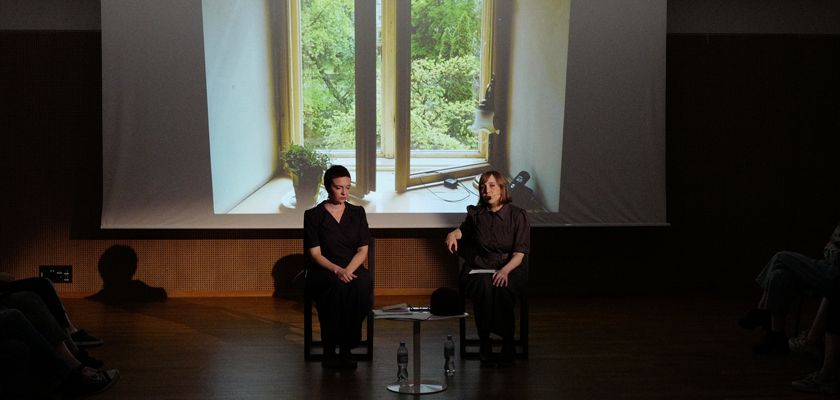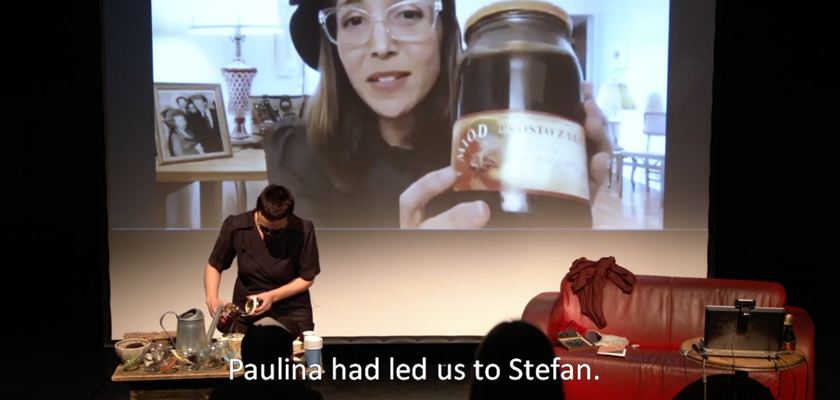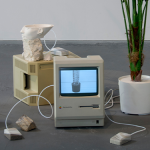Conversations | Artist Michelle Levy on the Art of Resiliency
When a presenting opportunity was indefinitely postponed due to the pandemic, Levy took time to think about the best way forward for her collaborative creative project.
Our “Art of Resiliency” series investigates the impact of the pandemic on three projects that are part of NYFA’s Fiscal Sponsorship program. In Part One, we spoke with Angeline Gragasin about how the crisis forced her to radically reimagine Happy Family Night Market. In Part Two, Stefanie Izzo shared how she pivoted to an entirely digital performance format during Astoria Music Project’s 2019-20 season.
Part three of this series focuses on Paulina, an evolving multi-media work of experimental storytelling that unfolds between life and death, the Holocaust and now, in Poland and in the U.S. Paulina is a collaboration between Michelle Levy (New York) and Patrycja Dołowy (Warsaw).
NYFA: What was your original intention or vision for your project, and how did it change during the pandemic?
Michelle Levy: Paulina began in 2018 when I went to Poland to conduct immersive research into the found Holocaust survival testimony of a Polish Jewish woman named Paulina Hirsch, whom I had believed to be my relative. Working with Patrycja Dołowy, a Polish Jewish writer, artist, and activist, who first translated Paulina’s testimony for me, we planned a journey following Paulina’s wartime path across Poland and Ukraine. A series of accidents and coincidences led us to a life-altering encounter on the road that forced us to question everything we knew. We returned with a story that felt almost impossible to tell, and with a resulting new responsibility to the guardian of an important, buried Jewish archive.
We have been working on a multi-media storytelling performance about our experience that has been presented in-process. In the Spring of 2021, it was to be developed and premiered in New York City as part of a residency with Baruch Performing Arts Center. When this opportunity was indefinitely postponed, it gave us a chance to step back and think about the best way forward. We decided to shift gears and focus on the current unfolding chapter of our work together in the form of a film.
When this opportunity was indefinitely postponed, it gave us a chance to step back and think about the best way forward.

NYFA: Did you learn of any new platforms or technologies that helped you to adapt? Is there anything in particular that you did (or did not do) that helped your project survive into 2021?
ML: Yes! We were fortunate to be invited to present a streaming version of the work-in-progress with a Polish theater festival organized by Kana Theater in Szczecin in September 2020. Working with director Kathleen Amshoff, we managed to transcend time zones and distance to develop a performance completely remotely. It was hybrid—Patrycja performed live in the theater with me on Zoom—and the virtual audience got to see a combination of the elements together. Patrycja performed in Polish, and I in English. The theater provided us with a lot of technical support including rapid-turnaround subtitles for an improvised piece. By the end of it, it felt as we had really been together in the same space. It was really like energy channeling. And it was a great way for multiple audiences (especially Polish and American) to see us simultaneously.
It enabled us to think about the distance between us, both physical and the language, as material to work with creatively. We realized while we are sad to be apart, we don’t have to be physically in the same place to tell our story. So, with a break in time, I started thinking about how to develop the accompanying visuals for a streaming performance and took a wonderful workshop on magical realism at Union Docs that really opened my eyes towards film. We had started with performance because performance is what we know, but always saw it as a stepping stone towards an eventual film. With all that has happened, we agreed it was time to skip some steps!
It [the streaming version of the work-in-progress] enabled us to think about the distance between us, both the physical and the language, as material to work with creatively.
NYFA: What does the future look like for your project? Do you have any events on the horizon that we can share with our audience?
Pivoting towards film is a giant pivot, and we have a lot of hard work and a major learning curve ahead. But beyond dealing with a much larger-scale, more demanding production, there is even more hard work required of us around the social aspect of the project itself—regarding a story passed on to us about a buried archive of Jewish documents in Poland that has never been recovered. This is a complicated and sensitive matter. I believe that the process of making this film will contribute to raising awareness around the story while helping to facilitate any possible positive outcome for this enormous task.
– Amy Aronoff, Senior Communications Officer
NYFA Fiscal Sponsorship’s quarterly no-fee application deadlines are June 30, September 30, December 31, and March 31. We also accept Out-of-Cycle Review applications year-round. Reach out to us at [email protected] for more information.
Sign up for NYFA News and receive artist resources and upcoming events straight to your inbox.





